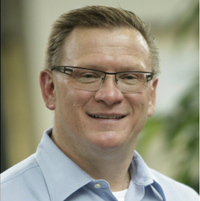Getting paid, finding clients is harder than you think

As a budding or accomplished safety practitioner, you have likely entertained the idea of becoming a safety consultant one day. Perhaps you just finished a project where your company brought in a consultant and you saw safety consulting in action. Perhaps you just got caught in downsizing and have become an unintentional free agent. Maybe you are just fed up with your current employer and need a change. Or perhaps you are nearing retirement and feel you have the experience and know-how to pull it off as a safety consultant. After all, how hard could it be?
There are many benefits of being an independent safety consultant. As a safety consultant, you get to work when you want, at your own pace, doing just the type of work you want to do, having choice over which clients you work for and, of course, the financial freedom to make as much money as you want. Safety consultants charge a fortune! Think of all the money you could make. Before you do anything drastic and hang out your shingle there are few things for you to think about. If after thinking this through you are still keen, please give it your best shot.
The safety consulting process is really quite simple. You advertise your services to clients who need your help. You write them a proposal for service, you complete the work and they pay you. It sounds straightforward enough, but you may have the following questions.
How do I find clients? By advertising yourself. Sales and marketing is a time drag on your business and no one will be paying you while you are doing it. For most technical people, such as safety professionals, this is a necessary evil. Networking and advertising in safety consulting are almost the same thing. In safety consulting, we don’t sell, we tell. That is, we tell a compelling story about who we are, our expertise and how we can help the client. You need to create visibility and credibility for you and your expert service. To be able to advertise yourself, you will have to first figure out what you know that someone else would be willing to pay you for. What is your market differentiator? What do you do better than your clients and better than all the other consultants? That is the service you need to be selling and hopefully there are enough people who want to buy this service to keep you busy and in business.
How much should I charge? Lots, right? Figuring out how much you should charge for your time is one of the toughest things you’ll need to do. If you charge too much, no one will hire you. If you charge too little, it will be a tough way to make a subsistence living. Once you have market position and real credibility, this gets to be easy. Until then, it is best to be formulaic in determining what you should charge. The formula for determining your target hourly charge rate is to take your desired annual salary and divide it by 2,000 (hours in a year) and multiply it times three. For example, if you want to make $100,000 per year, your target hourly rate should be about $150 per hour or $1,200 per day. If you want to make more money, simply plan to charge a higher hourly or daily rate. Now determine how many clients will be willing to hire you at this rate.
How do I win work? By writing a proposal. Proposal writing is the life-blood of safety consulting. Every project, no matter how big or small, needs to have a written proposal. It forms the basis of your contract for services and fully defines what work is in scope (what you are going to do) and what is out of scope (what things you are not going to do). It defines the what, the how and the why of the project. Good proposals also provide a resumé of your expertise and give you the opportunity to explain to the client the unique skills, abilities and experience that you will bring to the project.
How do I get the work done? This is probably the easiest part for most safety professionals. Executing consulting work is the same as you would do as a corporate safety practitioner. There will be a job to do, a timeline to do it and a deliverable. One big difference between consulting and corporate safety is the deliverables in safety consulting tend to be more specific, detailed, structured and formal. Clients can be very demanding.
How do I get paid? This may sound easy but getting paid is one of the most difficult parts of safety consulting. A safety practitioner who is an employee gets used to being paid every two weeks. In fact, your employer deposits the money right into your bank account. You might think that clients will be keen to pay your invoices for a job well done, but the truth is many of your clients may not even really understand how their company’s accounts payable system works to get you paid in the first place. Even if they do understand the system, the terms of payment may be within 90 or 120 days, even though your invoice and contract may demand payment within 30 days.
Getting paid as a consultant requires you take great care and put in the necessary time and effort. Before you start your safety consulting practice, you should likely have a nest egg equal to your targeted annual salary to feed your family while you build the business. Smart consultants know that it can take three years to build up a clientele sufficient to replace your current corporate salary.
When do I get to take that stroll down easy street? Before you think of making the leap from the corporate world, it’s crucial to get your nest egg saved and in the bank, know what your service specialty will be, know your market differentiator and figure out the value of your time. Get ready to network like crazy and build a plan into every project to make sure you get paid. There are many benefits to being an independent safety consultant, but before you do it, look before you leap and remember, if it were easy, everyone would be doing it.
This article originally appeared in the February/March 2018 issue of COS.






